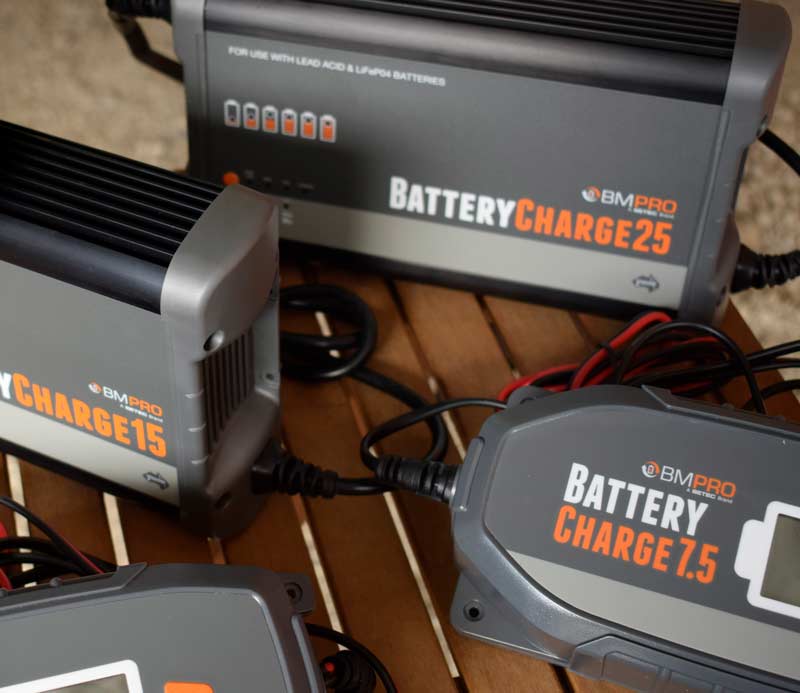Fast Battery Chargers – Really?
Question to 12V Guru:
Hi BMPRO, have been trying to understand why, when I have a fast battery charger and it tells me that the battery is at 100%, it lasts less time than if I charge it slower overnight. Can you shed some light?
Bill Slattery
Mt Gambier, SA
12V Guru answers:
Thanks, Bill, for what is a very misunderstood issue when it comes to charging batteries – especially the 12V Deep Cycle variety found in most caravans and campers out there. It is not always a matter of connecting the charger and thinking that is the end of it. Much of what is described below is similar to what you would see with the charging of your mobile phone. Whilst the chemistry of the batteries is vastly different the point is that you need to understand how batteries operate to achieve the maximum life of each battery. At the end of the day both batteries will cost you more than $200 to replace once diminished below their useful level.
12V Battery – what’s inside?
A deep cycle battery has thick lead plates inside, as compared to a starting 12V battery which has thinner plates which has more plates. This surface area could be compared to a sponge which absorbs water. While larger surface area will absorb a large amount of the water very quickly, the battery with small surface area takes time to absorb the last 20%. Like phone manufacturers, the charging for this last 20% of the battery capacity must be done carefully so as not to damage batteries. Simply “thumping” energy into a battery achieves nothing but short term results and certainly does nothing to preserve the capacity of the battery longer term.
Fast battery charger or smart charger?
Once the voltage reaches a specified level on a deep cycle battery the amps that are delivered need to be reduced so that the battery does not become too hot as this will damage the battery irreparably. This is why higher quality chargers will include a temperature sensor within the battery connection cables or a separate sensor to be attached to the side of the battery casing. Once a charger understands this temperature is outside the specified parameters it should reduce charge current to prevent heat build-up.
Ensuring that you charge your battery with a well known brand charger will ensure you don’t become unstuck. In my experience, the cheaper the charger the cheaper the algorithms that have been programmed and lower quality the components used in manufacturing indicates the manufacturer is providing a cheaper solution that may not go the distance and doesn’t really understand batteries – especially the difference between deep cycle and starter batteries. We have seen this with the ambit claims out there that you can charge Lithium batteries with any charger – simply not true.
Will any battery charger do?
At BMPRO with our extensive testing facilities we have proven that charging specialist batteries (such as Lithium) do actually require specialist chargers to charge a battery to its full capacity. Whilst some manufacturers of batteries will claim that any charger will do, they are simply seeing that a charger reaches a peak voltage and therefore it is at full capacity – again not true! It takes time for the full chemical reaction inside the battery to occur and thus really be at full capacity. There are specialist battery chargers for batteries for a reason. This is why there are different charging algorithms which relate to various different batteries chemistries that exist within the variety of deep cycle batteries.
As in many previous discussions regarding deep cycle batteries, is the underlying message that it is important to understand your electrical setup, especially the “active” components of the system such as batteries. Whilst you can place a level of trust in manufacturers providing you with a system that is suitable for general caravanning, it would be smart to remember that these standard setups may not really be suitable for your individual needs. Understanding that batteries take time to charge fully with suitable chargers is extremely important to avoid disappointment in the energy you really want your battery to deliver.
The article has been published in the Caravan World Magazine.
Like this Post? Share it!




